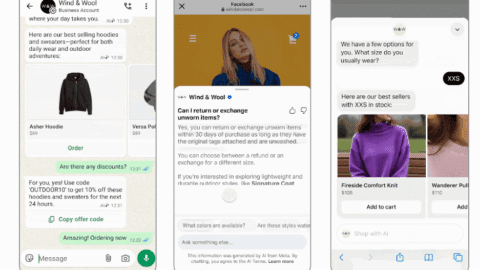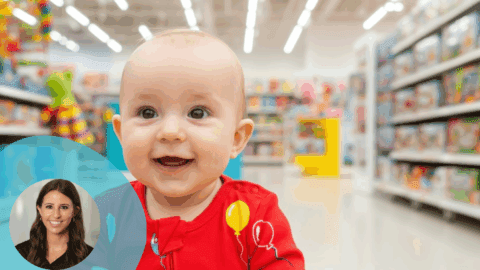Consumers are relying on social networking sites, such as Facebook, Twitter and LinkedIn, to stay connected with friends and family, obtain information and share their opinions on open platforms. Due to the highly interactive capabilities of social networking sites, retailers are rolling out and promoting brand pages in an effort to expand brand awareness and formulate long-term relationships with current and potential customers.
While standard marketing tactics such as posting pictures and status updates, and responding to shopper questions and concerns, do initiate communication, retailers are struggling to quantify the ROI of these initiatives. In a previous ViewPoints article, Brad Klaus, CEO of Extole, a social marketing-as-a-service program provider, shared his insights on Facebook commerce (F-Commerce), how retailers are analyzing social media activity and the components of a social graph.
In this special follow-up Q&A, Klaus updates Retail TouchPoints readers on recent developments in social media, the stagnant growth of F-Commerce and social media’s impact on customer engagement and loyalty.
Retail TouchPoints (RTP): Since your initial interview with RTP in January 2011, what notable developments have occurred in the social media space? How have these new advancements altered retailer implementation of social commerce initiatives?
Brad Klaus: Over the last few years, we’ve seen brands take advantage of social networks — Facebook, Twitter, LinkedIn, Google +1, etc. — to build a social presence. However, much of that presence was an extension of traditional marketing, with retailers pushing brand content out over these social channels. Although companies are building brand pages and driving engagement as well as fans and “Likes,” many of them struggle with determining the true worth of these investments.
The reach of social networks, combined with the proclivity of consumers to share more, creates an enormous new opportunity for marketers. “Zuckerberg’s Law of Information Sharing” states that the amount of consumer sharing is doubling year over year. This opportunity is what we call “Consumer-to-Consumer Social Marketing.” Instead of creating content and pushing it out to the market via traditional and digital channels, retailers can identify social advocates who are willing to create content and promote the brand for them. This provides retailers with a massive opportunity to tap into a new marketing channel that ultimately results in high quality sales and acquisition. At the same time, the social content generates powerful brand awareness and improves results in other channels such as search and display.
RTP: F-Commerce was a hot topic during 2011. How do you believe it will develop in 2012?
Klaus: To date, the creation of e-Commerce storefronts hosted on Facebook brand pages has not driven significant results for retailers. There may be a day in the future where this strategy makes sense, but I believe the real opportunity to drive commerce on Facebook is to leverage the site as a distribution platform. In other words, retailers should be looking for their advocates and leveraging those consumers to post social content and offers into Facebook, thereby taking advantage of the site’s tremendous reach to help drive new customers and sales. We see Facebook as a distribution platform for positive word of mouth, which drives transactions. For now, the transactions will occur mostly off of Facebook.
RTP: How does social sharing, word of mouth and other social behaviors fuel customer engagement and overall loyalty? Are there any notable best practices retailers can implement to encourage interaction via social networking sites?
Klaus: This question represents the foundation of the Consumer-to-Consumer Social Marketing opportunity that we see at Extole. Word of mouth has always been a high-value marketing channel for retailers; however, there hasn’t been an easy way to automate and measure this process, since it traditionally occurred offline. As online sharing and conversations continue to increase, retailers have a new opportunity to identify their highly engaged, loyal customers and turn them into “social advocates.” In turn, this special breed of shopper will share her retail experiences and promote her favorite brands to social communities.
To leverage this new marketing channel effectively and empower social advocates, a best practice that we’ve seen at Extole is to implement a social referral program that utilizes all of the available company assets to promote the program. A retailer’s social followers are usually a subset of their customers and loyal brand fans. By leveraging the corporate web site and emails lists, as well as social networks to promote referral programs, retailers can generate significantly higher participation from advocates. The social referrals from these loyal consumers will drive higher-value sales because the referrals come from trusted friends. Typical results include increasing conversions by three to five times. With the proper tools, retailers can automate and optimize consumer-to-consumer social referral programs.
RTP: How can retailers promote social initiatives and roll out a referral strategy that increases click-throughs and overall loyalty?
Klaus: There are two ways to look at promotions and giveaways: they can drive awareness and they can drive sales, which aren’t mutually exclusive. Global promotions and giveaways will drive the greatest reach and participation, but not necessarily the highest-quality prospects or sales. At Extole, we believe that your best customers’ friends are your best prospects. By targeting loyal shoppers with offers to share with their friends, you will amplify reach while tapping into a high-value sales channel.
Let me provide an example from our customers. To drive awareness and acquire new customers, one retailer created a referral offer that was promoted to its best customers (based on order history) via Facebook, Twitter and email. In the first 30 days, the company identified 200,000 brand advocates who generated 150,000 referrals to the company web site, many of which became new customers. Over the last eight months, the program has continued to drive similar results, including tens of thousands of posts on Facebook and “tweets” on Twitter. The retailer was able to drive awareness and sales successfully through a consumer-to-consumer social promotion.
RTP: What are some of the qualitative and quantitative metrics retailers should be utilizing to determine the ROI of social media marketing?
Klaus: Measurement is key in any social media initiative. While the quantitative metrics are still important, the qualitative metrics, along with the new data and analytics available, truly help brands understand social media’s impact on their bottom line.
In all of our programs and campaigns, we focus on the qualitative metrics which include: number of brand advocates identified, how many times these advocates shared, the channels through which they shared and how many impressions/views were generated. On the quantitative side, we focus on the key performance indicators of how many new customers were acquired, how many opt-ins were generated for example, through email, Facebook “Likes,” Twitter “Followers,” Google +1s and LinkedIn Followers, and how many sales, both new and repeat, were completed.
RTP: What are the qualities of an effective social media analytics solution? How can retailers tap into analytics to better understand social graphs?
Klaus: Our focus is on helping brands drive measurable results with solutions and tactics via social networking sites. So for us, the analytics needs to be about what value is being driven. From that standpoint, the analytics aren’t much different from what you would measure in other online marketing channels. Extole focuses on how many advocates and impressions were created, how many clicks were driven and ultimately, the number of browsers that were converted into sales. If done correctly, every social campaign should focus on metrics that spotlight brand awareness, impressions, clicks and sales.
Brad Klaus is Founder and CEO of Extole. Klaus has experience in online and social marketing, and has founded several technology and online marketing companies. As the founder and CEO of Extole, Brad is building upon his online marketing experience to help brands tap into the marketing opportunity in the social channel.












